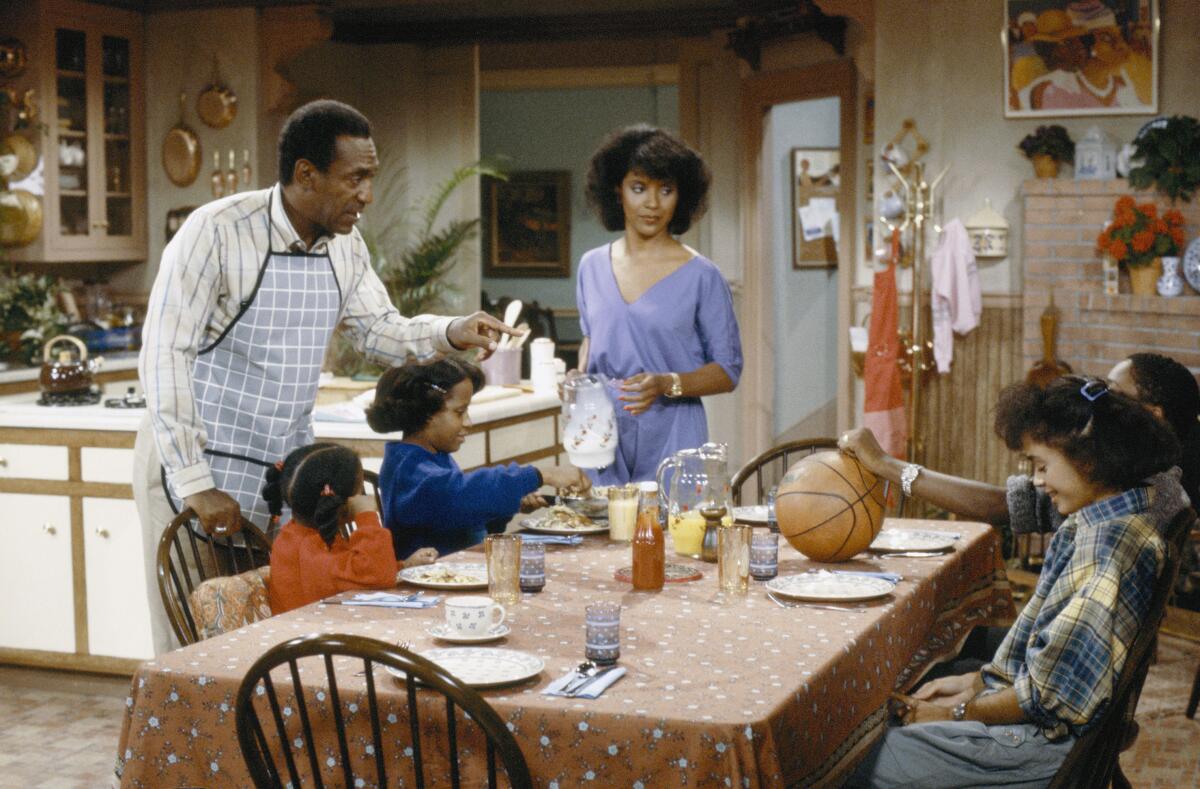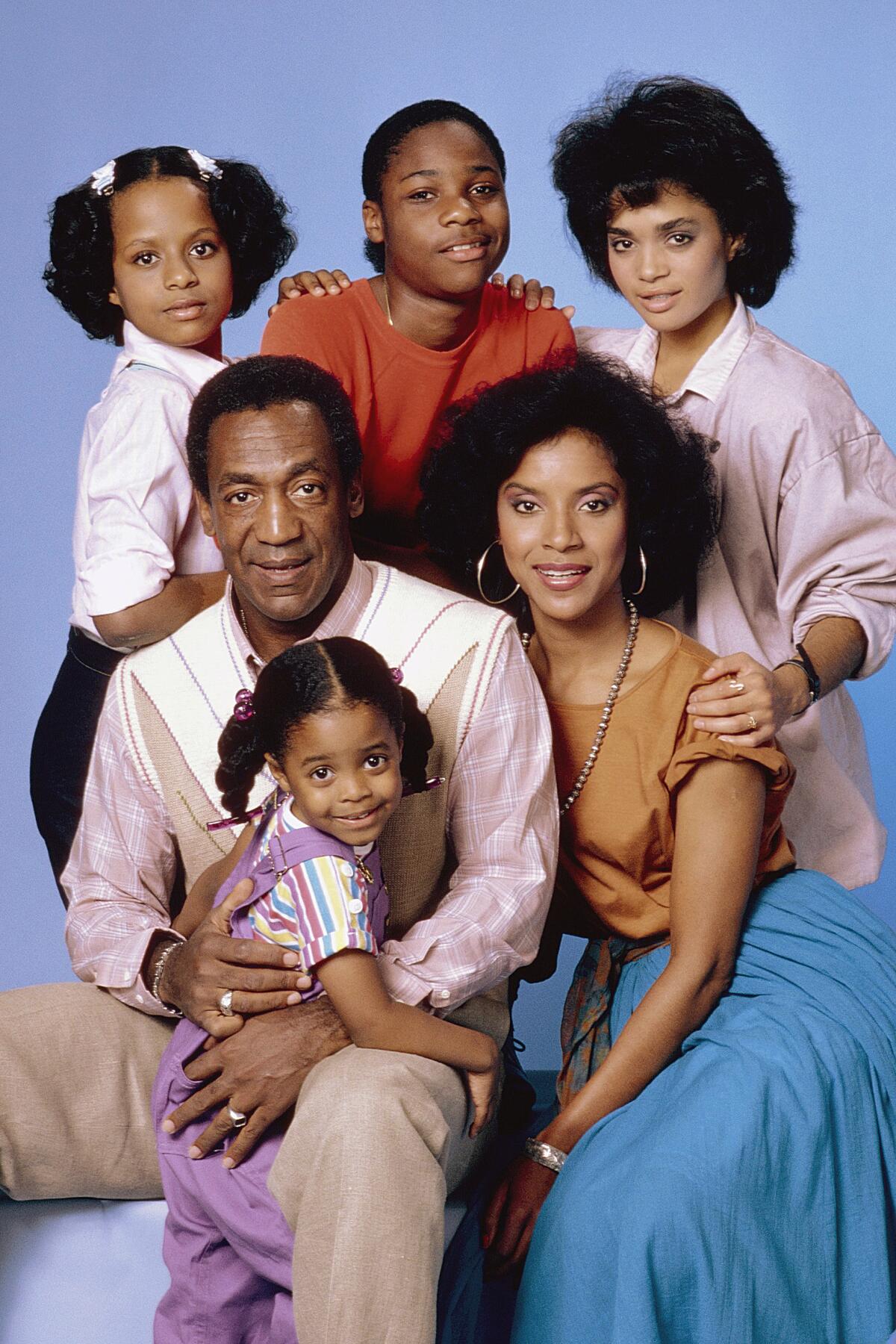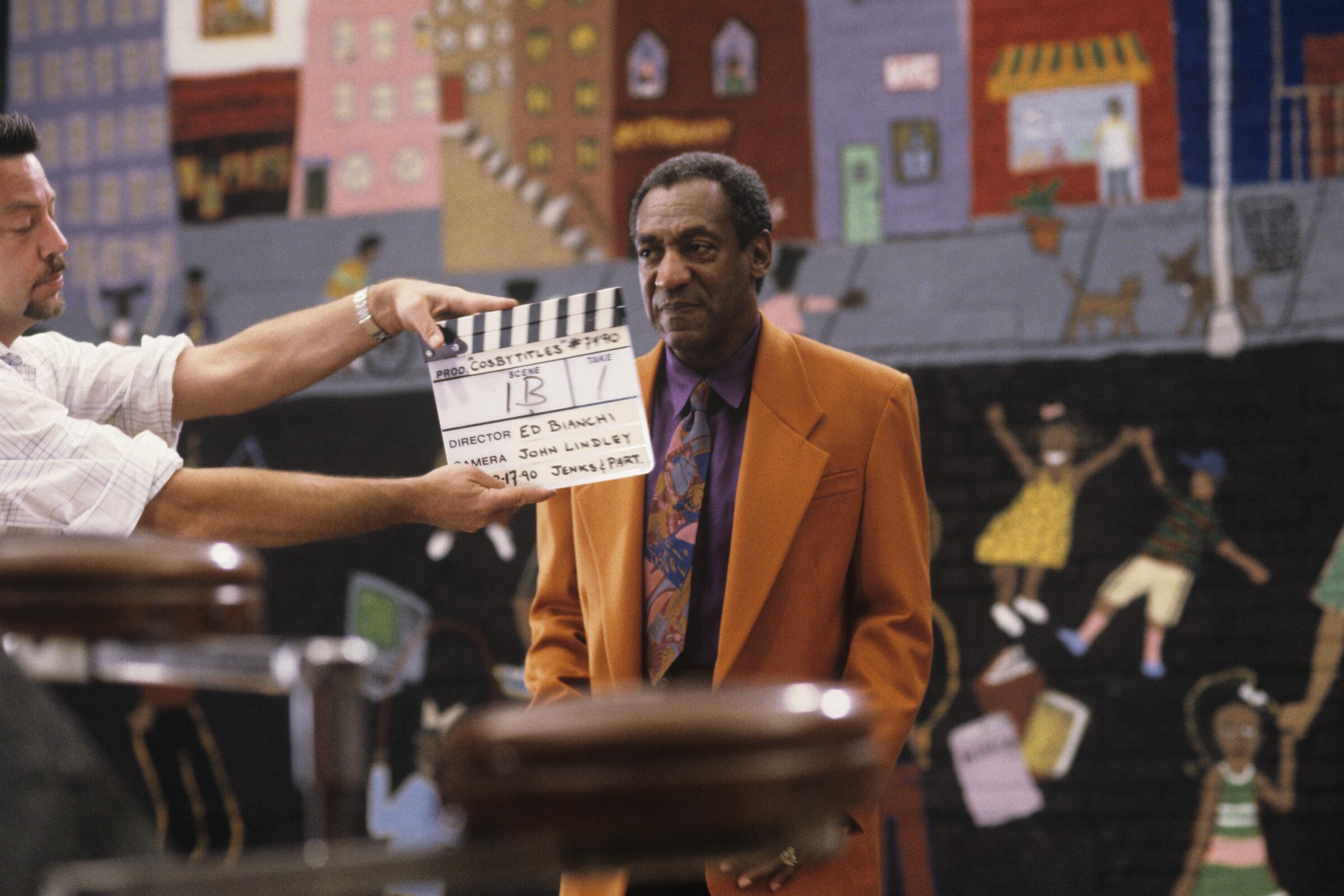
Under scrutiny once more, ‘The Cosby Show’ raises issues ‘bigger than Cosby’

There’s been quite a bit of talk about Bill Cosby since the start of “We Need to Talk About Cosby.”
W. Kamau Bell’s docuseries, which details how Cosby’s charisma, family-friendly persona and status as a cultural icon hid his dark side — including his alleged sexual predation on dozens of women — has earned praise from critics and viewers since its premiere at the Sundance Film Festival last month.
The latest chapter of the project, now airing on Showtime, examines “The Cosby Show,” the blockbuster comedy that ran from 1984 to 1992 and cemented Cosby’s reputation as “America’s Dad.”
The episode weaves together two strands: the sitcom’s key place in pop culture history, particularly Black history, and interviews with two guest actors from the show who have accused Cosby of sexual assault. One, Eden Tirl, alleges that Cosby pressured her to have sex and touched her inappropriately in a dressing room; the other, Lili Bernard, claims that Cosby drugged and raped her and afterward berated her during rehearsal when she refused to be alone with him. The episode also details elements of “The Cosby Show” that induce cringes in light of the allegations, such as the fact that Cosby’s Dr. Cliff Huxtable was an OB-GYN whose office was in the basement of his home.
At the core of the docuseries is its attempt to reckon with the disconnect between Cosby’s outsized place in the culture and his now-tarnished reputation, and what that means for our understanding of the work he produced. Aside from Tirl saying she hasn’t watched “The Cosby Show” since her experiences on set, “We Need to Talk About Cosby” does not explicitly address one practical question it raises here: Should we continue to watch “The Cosby Show,” or have Cosby’s alleged sex crimes cast an inescapable cloud over its legacy?
A panel of 6 photographs of Bill Cosby in a pink sweater making different faces
A new Bill Cosby docuseries nearly drove its director to quit. The struggle paid off

The docuseries, along with Cosby‘s recent release from prison following the reversal of his 2018 conviction for sexual assault, has brought new focus on “The Cosby Show.” Although reruns of the series were pulled in 2014 when accusations against the actor gained momentum, the comedy is currently part of a weekday afternoon block on basic cable’s TV One, which also includes “A Different World,” a spinoff of “The Cosby Show” set at a fictional historical Black college. (Executives for the network did not respond to repeated inquiries about their programming of “The Cosby Show.”) Episodes of the series are also available on streaming platforms such as Philo (for subscribers) and Amazon (to rent/buy on demand).
While Cosby himself has become persona non grata in Hollywood of late, particularly since the rise of the #MeToo movement, the sitcom itself remains a point of intense cultural debate.
“Cancel culture and #MeToo mandate that people pay for their sins for righteous reasons and in decidedly different ways sometimes,” said Lanita Jacobs, associate professor of American studies and ethnicity and anthropology at USC.
“But Black audiences — who are in no ways a monolith — can’t always afford to ‘cancel’ our legendary heroes and stars, especially when they gave us something beautiful to look at and aspire to and laugh at when we needed it,” Jacobs continued. “We can do other things, including look at them a bit differently while holding on to them tenderly, tenuously, or not-no-more.”
“From the aspect of what ‘The Cosby Show’ meant, and what it meant for Black people to see two successful African American professionals on television raising a family, [it] was huge. And we need to see that structure — that it’s possible,” said comedian Guy Torry, an executive producer of Prime Video’s “Phat Tuesdays,” a docuseries about a showcase for Black comedians at Hollywood’s the Comedy Store that began in the mid-1990s. “It’s unfortunate what happened to those women and I feel bad for them. But this is bigger than Cosby.”
A closeup of Lili Bernard during a documentary interview
Lili Bernard in “We Need To Talk About Cosby, Part 3.” (Showtime)

Darnell Hunt, dean of social sciences and professor of social sciences and African American studies at UCLA, said, “I don’t feel we should push the show into a corner because of what happened with Bill Cosby decades after it was off the air. Historically, it’s one of the most important shows that’s ever been on the air for Black people. It also recruited many Black writers who went on to successful careers.” (As “We Need to Talk About Cosby” notes, Cosby is alleged to have committed sexual assault as early as the 1960s, though the accusations did not become public until much later. Cosby has steadfastly denied all allegations of misconduct.)
Bell, in an interview with The Times in late January, spoke about how his docuseries might shape future considerations of Cosby.
